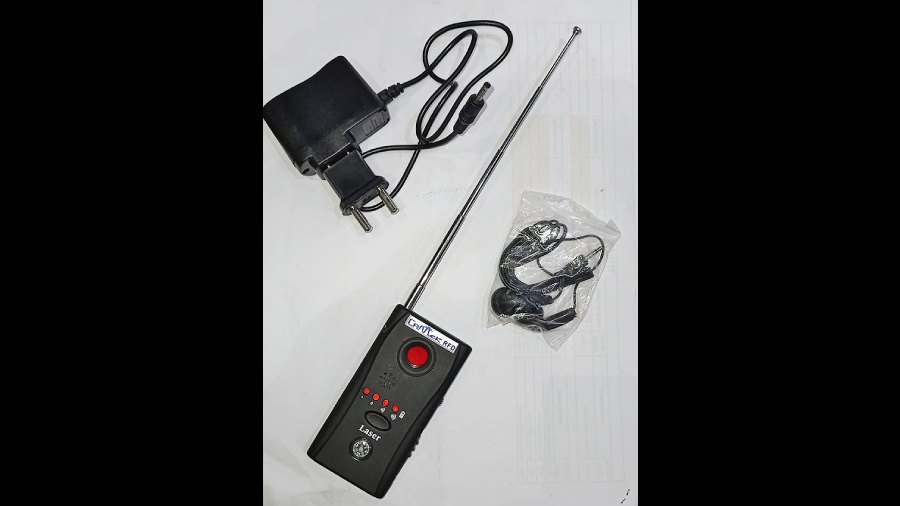Teachers who will work as invigilators during the higher secondary exams in North Dinajpur district from Tuesday are sceptical as to whether they can completely stop examinees from carrying cellphones inside examination halls.
Reason: they don’t have enough RFD (radio frequency detector) machines at their disposal.
The RFD is a scanner fitted with a sensor and a camera that can sense the presence of a cellphone or similar electronic devices if brought close to a person’s body.
Ahead of Class XII exams which will start on March 14, the West Bengal Council for Higher Secondary Examination (WBCHSE, which conducts the exam) announced that it would introduce RFDs across the state to frisk students, especially in districts from where reports of cheating and use of cellphones to facilitate it have been reported in earlier years.
“In North Dinajpur, however, only three RFD machines have been sent. There are serious doubts as to whether these machines can be used to scan all the students appearing in the exams, especially in the extra-sensitive exam centres,” said a senior schoolteacher.
He said that the council had identified certain centres as extra-sensitive based on earlier reports of examinees resorting to unscrupulous means such as using Internet-enabled cellphones to know the answers while writing their papers.
“Altogether, there are 95 exam centres in the district, among which 40 are deemed extra-sensitive. Three RFDs are too few to scan students of all these 40 centres,” the teacher added.
The extra-sensitive centres, sources said, are located in Islampur, Chopra, Goalpokhor-I and II, Karandighi, Hemtabad and Itahar blocks.
Prasun Kumar Dutta, the joint convener of the district-level committee formed by WBCHSE to conduct the exam, said they would use RFD machines for surprise checks.
“We have requested the council to send three more scanners to us. As of now, it has been decided that one machine each would be sent toIslampur and Raiganj sadar sub-divisions. I will carry the third. During exams, teams will visit centres to conduct surprise checks by using the devices,” he said.
By using an RFD machine, teams can get an idea about the number of cell phones active in an exam centre and the location of such phones, he said.
“The machines will be used for secondary checks. Primarily, students will be frisked thrice thoroughly before they enter the exam hall so that they can’t carry cellphones,” said an official of the district education department.











